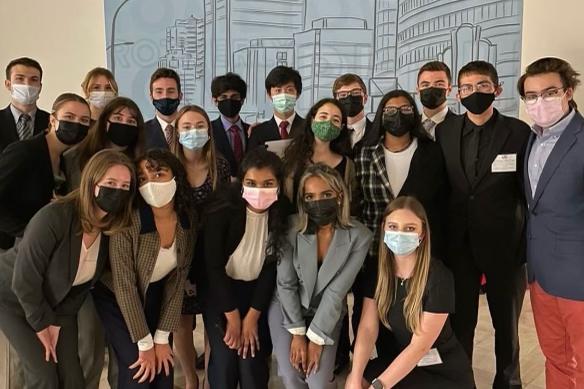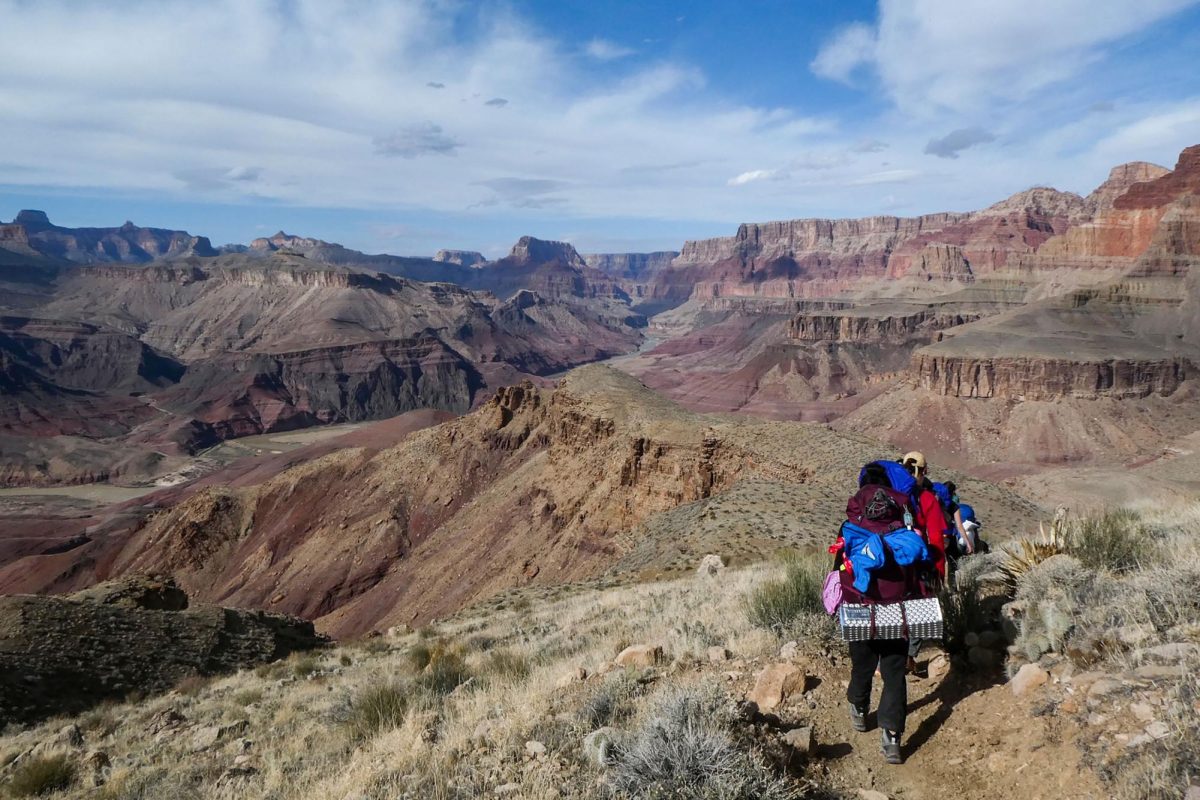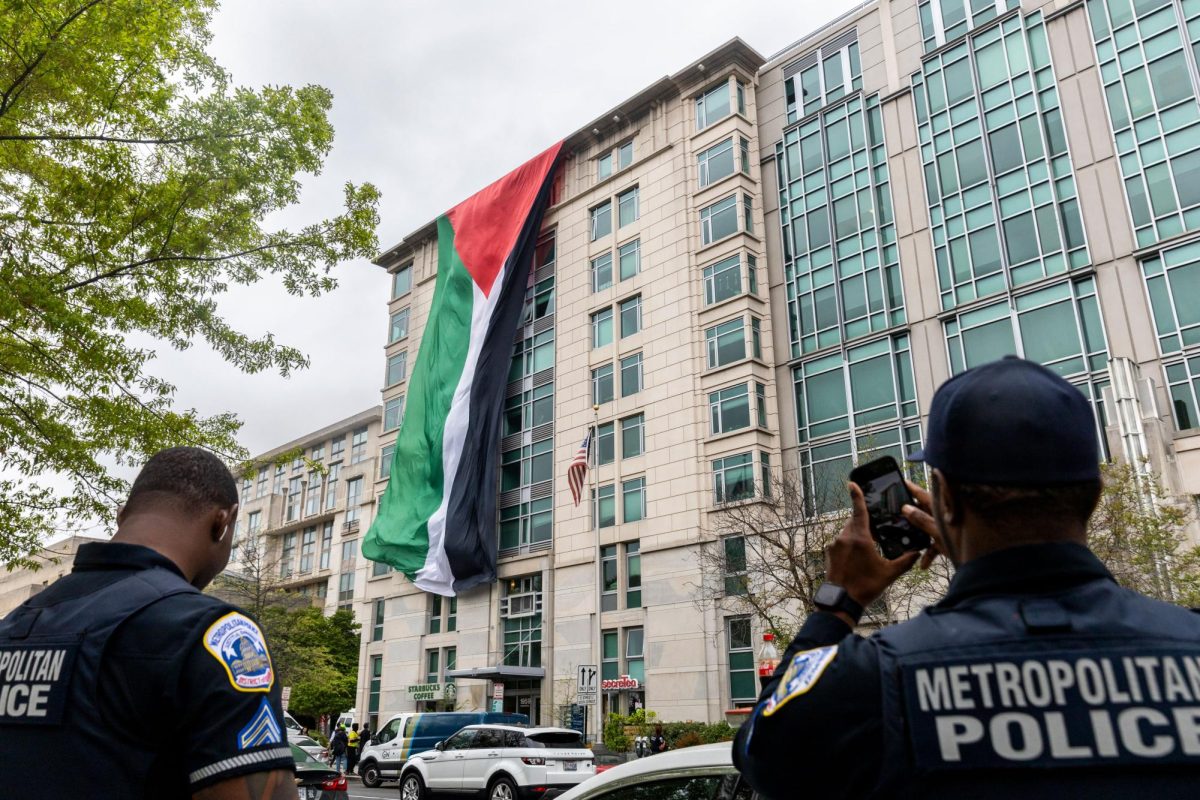The Model United Nations team made a historic jump this year, achieving its highest fall national ranking in the history of the organization.
Best Delegate – a national Model UN organization that ranks all Model UN teams in North America – ranked GW’s team fifth in the nation, a 20-place jump from last year’s ranking after pandemic-related setbacks forced the team to miss virtual conferences and face substantial budget cuts from the University. Members of the organization said an increase in training sessions, national and international travel for conferences and a focus on team building through social events drove the team’s jump to the top five this year.
Amanda Saji, the president and head delegate of GW’s Model UN team, said the team reduced its number of leadership positions from 12 to three to unify and connect this team this year. She said the group also focused on recruiting a new freshman class of delegates that has consistently won individual gavel awards, including the best delegate award, thereby contributing to the team’s success.
Saji said about 10 to 26 students attend each conference as delegates. She said more than half of the team’s delegation has consistently won gavels at conferences this year.
“My team is just amazing people and then my co-leadership board, they’re so smart and so talented,” she said. “And it’s a situation where we can all go, we’ll be in like tough committees, and we’ll still win awards and lead the team and I think it’s such a good example for everyone.”
She said each win that the delegation receives is based on a weighted point system. She said the points are weighted based on the competitiveness of the conference which is formulated on the number of delegates and schools that attend the conference.
She said the team traveled to more conferences this year and attended competitive conferences at the University of Pennsylvania and Boston University in the fall.
“It is such a team effort and to be able to say we beat schools like Harvard and Yale, it’s so nice and rewarding,” she said.
She said all conferences turned virtual after the COVID-19 pandemic broke out in the spring of 2020, but the group decided to not participate in the virtual conferences because they felt like they competed stronger in person and wanted to stick to what they did best. She said the decision to opt out of virtual conferences hurt the team’s scores, leading to a drop from seventh in the rankings to 25th.
“Being 25 really hurt us,” she said. “But then also, last year we were 25, this year we were fifth which is also the highest fall ranking we’ve ever received in the history of our team. So it was a good jump, it was definitely rough, but it was like the best thing that we could have ever asked for.”
Saji said the organization requested $37,000 this fall from the Student Association, but only received $4,956. She said the team is often “scrambling” before a conference to find the cheapest travel and hotel options to stretch their budget, still leaving students to pay $175 to attend each conference.
“We got literally nothing,” she said, “And I remember during the initial stages, we were so stressed, we’re like, ‘How are we going to make this work?’ And luckily we had money in the account, and things that we could do, but it’s an issue for future generations.”
She said it was a “miracle” that GW’s team was ranked fifth against well-funded teams. She said the team’s success and high rankings this year was because of a team “extremely dedicated” to winning.
“It’s really unfortunate because I really do believe GW MUN could be one – top one – one day,” she said. “It’s just, with the funding we have and the resources we have, it’s really hard to get there.”
Tommy Litchfield – a junior and the chair of the International Affairs Society, Model UN’s parent organization, – said the group will continue to train students and increase their conference attendance since the team has received increased attention from other Model UN programs who are looking to unseat GW’s team.
“Last year, all the conferences were online because of COVID,” he said. “So we only attended two conferences for the entire year. This year, we came back and Amanda had said we’d hit the ground running, we need to come in full force.”
Ananya Sampath, a junior and the chief of staff for Model UN, said the organization meets once a week in preparation for the conferences that have helped the team garner awards.
“We have amassed a lot of individual awards across the team that has contributed to our high ranking, with exceptional performances from a lot of the new members and the seasoned members continuing to perform very well in committees,” she said in an interview.








